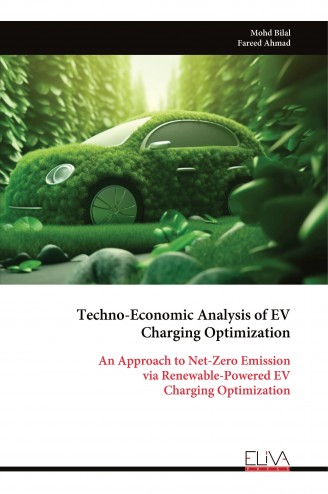Description
Leave review
Description
The rising penetration of electric vehicles (EVs) has placed unprecedented demand on power systems, especially in developing countries where grid stability remains a major concern. Techno-Economic Analysis of Grid and Renewable Powered Electric Vehicle Charging Stations in India presents a comprehensive investigation into the integration of renewable energy sources with EV charging infrastructure, focusing on sustainability, cost-effectiveness, and energy resilience.
This book explores how renewable energy technologies—solar and wind—can be optimally harnessed to support EV charging while minimizing reliance on the overstrained grid. Through a detailed case study of three distinct regions in India—New Delhi, Ahmedabad, and Madurai—this research evaluates the technical performance and financial viability of hybrid renewable energy systems integrated with the utility grid. Each location was strategically chosen for its contrasting solar and wind potential, along with variations in EV charging behavior.
The study introduces an innovative metaheuristic approach using the Modified Salp Swarm Algorithm (MSSA) for optimal component sizing. The goal: to minimize the Levelized Cost of Electricity (LCOE) and Total Net Present Cost (TNPC), while ensuring a highly reliable power supply to EVs. Results indicate that New Delhi demonstrates the most cost-effective configuration, with an LCOE of $0.0051/kWh and a TNPC of $14,853.63. The optimal solution utilizes 120 solar panels (325W) and 310 wind turbines (650W), producing 5,91,117 kWh annually—comprising 64.5% wind, 33.5% solar, and just 1.94% grid power.
By contrast, Ahmedabad and Madurai exhibit significantly higher costs and different energy shares, influenced by regional resource availability and usage patterns. This analysis underscores the potential of hybrid renewable systems to reduce dependency on conventional grids and promote sustainable EV adoption.
Combining advanced optimization, real-world data, and policy-relevant insights, this book is an essential resource for researchers, engineers, and energy planners dedicated to the future of clean transportation and decentralized energy systems.

